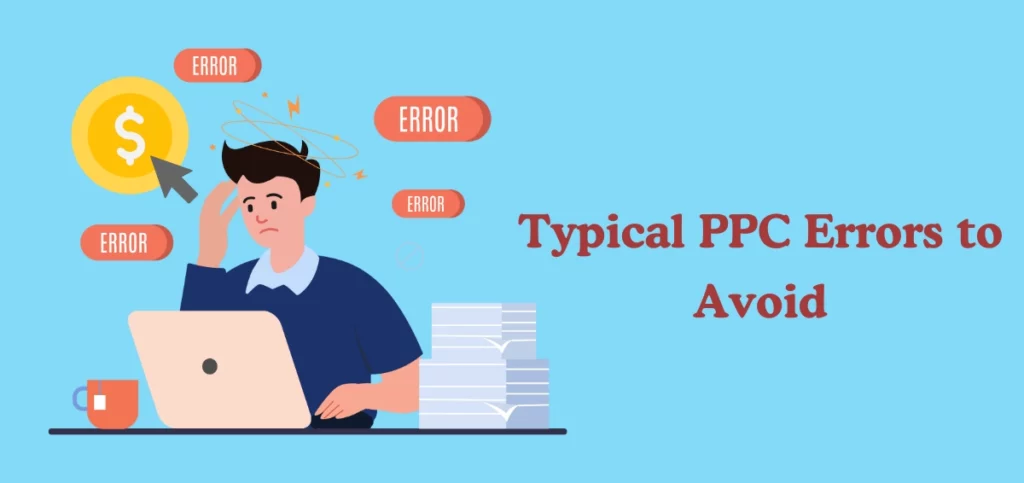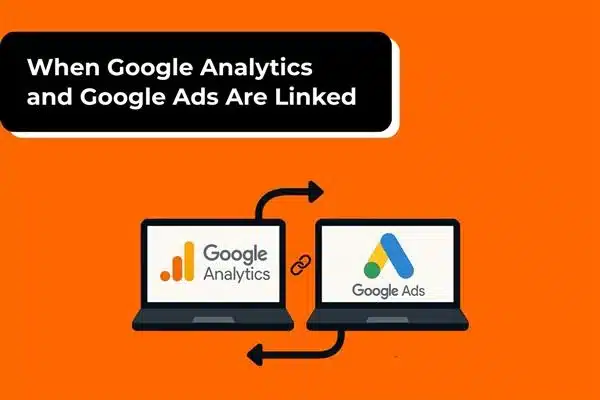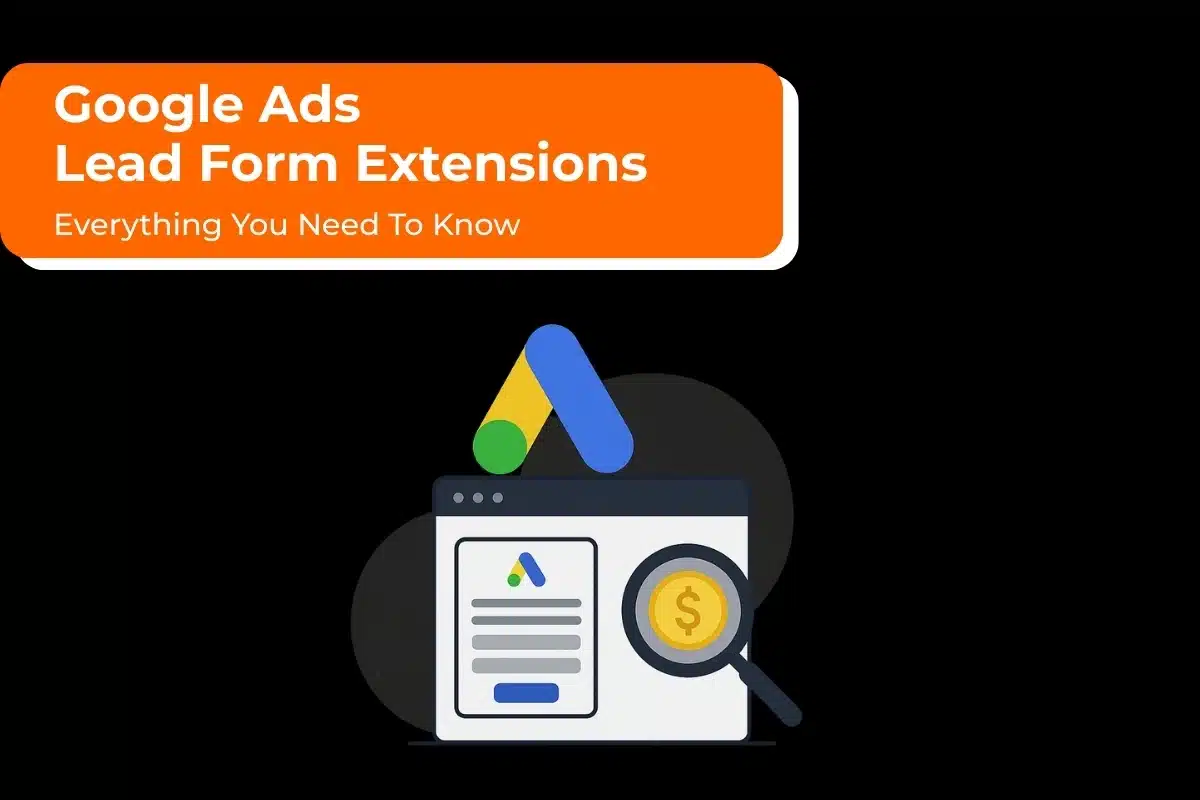Pay-per-click, or PPC, is a well-liked and successful form of performance marketing where you only pay when someone clicks on your ads. PPC campaigns, however, can also be expensive and wasteful if you commit some usual errors. PPC is one of the most critical components of digital marketing. Google ads campaigns undoubtedly have many advantages, but you should be aware that managing these campaigns and PPC marketing is complex. You can earn a ton of money with PPC, but you might be surprised to learn that there are many mistakes one can make along the way.
Some Common Typical PPC Errors to Avoid

There are a few common errors we see when it comes to PPC that can lead to unsuccessful campaigns or ones that spend much money but fall short of the intended business goals. Some of the standard PPC mistakes include
Not Utilizing Negative Keywords
Ensuring you get the highest clicks makes sense if you’ll pay each time someone clicks on your advertisement. Google has improved its different match types over time, activating more keywords than ever. They should be avoided because some of them aren’t even pertinent. The last thing you want is for someone to click on your advertisements without the intention of making a purchase. Use Google’s negative keyword list to weed out as many time wasters as possible and boost your return on investment.
Constantly Aiming for Position One
Everyone wants to be in the top position, whether running their own PPC campaigns or managing clients’ campaigns. Nevertheless, aiming for the coveted top spot is a standard PPC error, no matter how alluring it may be. The top spot can cost over $10 for some competitive keywords, which is too much for some businesses. Most of the time, focusing on your ROI rather than ranking first is a much better strategy. Even if you are in the second or third spot, you can still get many clicks for a meager cost.
Unaware of Customer Lifetime Value
A lack of understanding of customer lifetime value is another severe error that many paid search marketers make. You must know your metrics and numbers to create a successful campaign. A PPC campaign’s success depends significantly on data and metrics. You could lose money if you crunch the numbers incorrectly and spend too much. On the other hand, if you spend too little, you might not utilize paid advertisements to their full potential. Every successful campaign starts with knowing your key metrics and figures beforehand.
Absence of Ad Extensions
Google’s ads could be more attractive by default. Many beginners frequently fall into the trap of believing two headlines and two descriptions are all they need. Due to the overwhelming number of ad extensions available today, even seasoned PPC professionals occasionally need to remember to include them in their campaigns. The different Google Ad Extensions include Location Extension, Sitelink Extension, Callout Extension, and Price Extension.
Neglecting to Use Google Ads Scripts
Spending your entire life performing the menial, time-consuming little tasks of paid search management is not advisable. PPC managers frequently find it difficult to complete any significant work because of the numerous small, daily recurring tasks they must complete. The scripts from Google can perform various tasks, including monitoring your campaigns’ budget over-delivery and analyzing your Google display placements. Free and incredibly flexible, these scripts can be modified to work with APIs and run continuously throughout the day.
Avoiding the Ad Schedule
Not utilizing these busy times and spreading your ad budget evenly throughout the day is a common PPC mistake. The default setting for Google campaigns is continuously displaying ads, which is typically not the best option. If you consistently receive high-quality leads at a particular time of the day, consider raising your bids and spending.
To accomplish this, you can use Google Ads’ ad scheduling feature, which enables advertisers to raise or lower their bid modifiers at specific times. Additionally, you can turn off ads at particular times for maximum optimization.
Making Use of Smart Search Campaigns
The target audience for smart search campaigns, which often cater to newcomers, is to remove the management from running paid search campaigns. They use AI and machine learning to control the campaign’s bidding, keywords, and ad scheduling.
Sadly, despite their best efforts to persuade you that an all-in-one automated package is the best option, the outcomes are frequently unsatisfactory. That even a novice PPC user can outperform a smart search campaign is quite disappointing.
Refusing to Use Location Targeting
Identifying the target audience is one of the initial steps in creating a successful PPC campaign. It would help if you modified your campaigns’ location targeting settings to target particular nations and regions in Google Ads. Not only does location targeting ensure the right people see your ads, but you can also use the user’s location to draw their attention. Compared to not having it, this level of location personalization is also much more likely to increase user engagement.
Being Slow on a Website
Google statistics indicate that if your landing page takes five seconds to load, compared to a page loading in one second, the bounce rate will increase by 90%. A quick website is essential if you’re serious about maximizing your PPC investment. Every marketer should perform a test to ensure that their website loads quickly on both desktop and mobile devices. It can increase your PPC ad conversion rates while ensuring everyone visiting your website has a positive experience.
Lack of Landing Page Optimization
The landing page is one of the most essential parts of any PPC campaign. Your conversions are ultimately determined by it, in addition to significantly impacting relevancy and the quality score of a campaign. The landing page is one of any PPC campaign’s most crucial components. It substantially affects relevance and the campaign’s quality score, ultimately determining your conversions.
Learn How to Avoid All the Common PPC Mistakes
Website Pandas can help! We know and understand all of the complex workings behind pay-per-click campaigns. By utilizing our expertise, we can provide tips and advice on what to do – and, more importantly, what not to do – to maximize your campaign’s performance while avoiding costly misunderstandings about PPC advertising.
With Website Pandas, you can rest assured that your campaigns will be handled by experienced professionals who have seen it all when managing pay-per-click campaigns successfully with minimal waste. Our team works relentlessly towards achieving your goals – boosted conversions, better ROI, or even brand awareness.
Call us today at Website Pandas and benefit from our professional experience in PPC marketing as we work together toward success!






